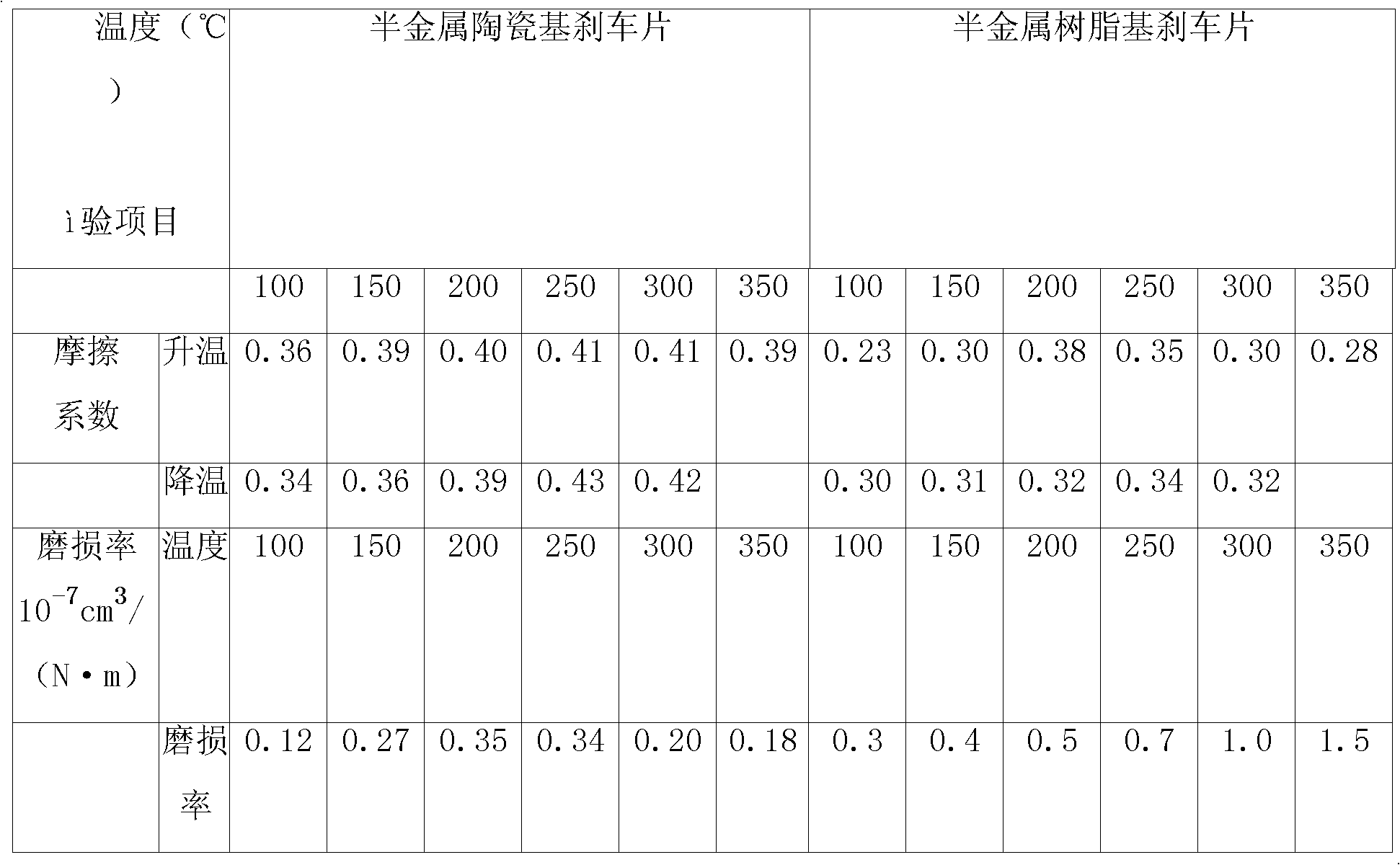Semimetal ceramic matrix brake pad and manufacturing method thereof
A brake pad and ceramic-based technology, applied in the field of brake pads, can solve the problems of reduced service life of brake pads, increased high-temperature wear of materials, and high-temperature wear performance that are prone to cracks, achieving high safety and reliability, high temperature resistance and The effect of improved service life and simple and reliable preparation method
- Summary
- Abstract
- Description
- Claims
- Application Information
AI Technical Summary
Problems solved by technology
Method used
Image
Examples
Embodiment Construction
[0022] The present invention will be further described below in combination with specific embodiments.
[0023] Description of the formula of the semi-metallic ceramic base brake pad provided by the invention
[0024] Ceramic binder 10~20(wt.%) Resin / rubber 5~10(wt.%)
[0025] Steel fiber 30~40(wt.%) Copper fiber, ceramic or mineral fiber 5~10(wt.%)
[0026] Graphite 5~10(wt.%) Antimony sulfide 3~8(wt.%)
[0027] Chromite 2~5(wt.%) Organic friction powder 2~5(wt.%)
[0028] Barite 10~20(wt.%) Petroleum coke 5~10(wt.%).
[0029] In this formula system, the ceramic binder mainly refers to the modified aluminum and silicate inorganic high-temperature binder, which can significantly improve the temperature resistance of the material, reduce the wear of the material at high temperature, and at the same time make the material Form a porous structure, increase braking smoothness, and reduce braking noise. In order to continue to use the molding process and production equipment o...
PUM
 Login to View More
Login to View More Abstract
Description
Claims
Application Information
 Login to View More
Login to View More - R&D
- Intellectual Property
- Life Sciences
- Materials
- Tech Scout
- Unparalleled Data Quality
- Higher Quality Content
- 60% Fewer Hallucinations
Browse by: Latest US Patents, China's latest patents, Technical Efficacy Thesaurus, Application Domain, Technology Topic, Popular Technical Reports.
© 2025 PatSnap. All rights reserved.Legal|Privacy policy|Modern Slavery Act Transparency Statement|Sitemap|About US| Contact US: help@patsnap.com


